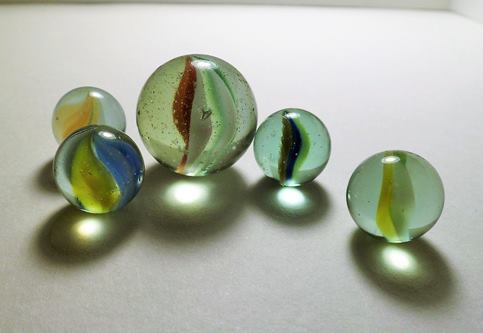Is it really about public speaking?
My client said that she had an issue with public speaking. Whenever she has to speak with people who are above her or in a senior role she blushes and stammers and feels very uncomfortable. Even when she is in a meeting with people she knows. When they go round the table and ask everyone to introduce themselves she dreads it as the turn comes towards her. She always feels as though she's being put on the spot. Someone might ask a question and she won't know the answer. She hates the feeling of being in the spotlight.
Rather than being an issue of public speaking, it seemed to be more about the fear that people will think her less knowledgeable than they are.
Public Speaking and issues from childhood
I discussed this with her and she revealed that she had felt this way for a long time. This suggested to me that the problem came from childhood. A problem from childhood needs regression therapy or metaphor replacement therapy.
She told me that it is quite likely that this came from her childhood. She was one of a pair of non-identical twins. Her sister is currently being treated for anorexia. Her sister has a history of behavior difficulties. When they were growing up, of the two twins my client always felt that she was the favourite, and that her sister was discriminated against. My client was blonde and bubbly, and her sister was dark and sullen. Whether this was cause or effect she could not say. She could not remember anything in particular about her childhood that had to do with public speaking issues with people in authority. But she was quite willing to go ahead with the therapy.
Metaphor Replacement therapy - defining the object
I explained to her that the fastest way was metaphor replacement therapy. For that she would have to be able to get the feeling right there in the chair. If she was not able to get the feeling then we would do regression and try to find the childhood incident that caused it all.
It took quite a while for her to get the feeling. I then said to her "and where in your body are you feeling it?" She said "in my heart". I said to her "what thing does that most resemble? Think about its color, its shape, its size, think about what it be like if you were to reach out and hold it." She took a very long time to respond. I began to think that she was not able to get the feeling and we would have to go to regression.
But eventually she whispered "it's like a ball". I asked her to start describing it. She said it's sort of transparent, with red and black going through it. It is warm". Further probing elicited that there was about the size of her hand, it felt soft, it was like a marble with colors going through it. It was smooth. When I asked "what else do you know about it?". She said "it is a part of me".
Developing the metaphor for fear of public speaking
I then said "and what would you like to have happen to it?" She said "I would like it be gone". I then tried to create the link between this thing being gone and her behavior. So I asked "and if it is gone, would that mean for you?". She said "There would be a hole".
And I said "and what could you do then?". She said "I can fill the hole". I wasn't sure whether she had actually got rid of the object already or whether she just didn't understand what I was asking. So I sent her what would it mean to you if that thing was gone completely from your body. And she said "freedom". I tried to finish the link. I said "and with freedom what can you do then?" She said "I would be lighter".
Not Destroying the metaphor object
I thought the session was going off track. So I asked her "can you make that feeling a little bit bigger?" She took a very long time to answer. And then she said "yes." And I said "can you make it a little bit bigger still". She started to get very emotional at this point. I was worried that she was going to have a catharsis. Or some sort of abreaction. Her mouth was twisting, her chin was wobbling up and down, she looked deeply distressed. Under her eyelids her eyes were moving as if searching for something.
I reassured her "nothing in your own mind can ever harm you". Next, I encouraged her to change that ball. I asked "can you make it a little bit smaller?". And to my surprise she immediately said "yes". I then got her to progressively make it smaller and smaller. From time to time I asked "and what is going on in that place now?". She said it is very small". Then she said it has changed colour. It is now blue. It is not a problem anymore."
Keeping her new resource
The standard part of the process is to destroy the object. But in this case she insisted "it is not bad". It appeared that she wanted to keep this thing. So I got her to take the thing out from where it was. I suggested that she might find someplace and nobody wish you could keep it. Where it would be an asset to be useful to her.
Then I told her to think about the place where that marble had been. I told her to find some pleasant helpful thing that she could put in there. I suggested that there was something she could put in that would fill the place completely and overfill it and fill the rest of her body. "What have you found to put in there?" She said "positive feelings". I asked "and what colour are those positive feelings?". She said "yellow". So I use that to suggest that that dark hole had been filled with yellow and the whole of her body was filled with that lovely yellow feeling and tied it into things like daylight and days at the beach and other good memories.
Coming back from trance
I then got her to take two deep breaths and to count from one up to 3. I suggested it when she got to 3 she will be back in the present. And she was.
I tested to make sure that the feeling was gone. And she said "you know I'm thinking about it. I am thinking about the meeting with my bosses. And I just can't believe that that feeling is completely gone. Totally not there."
Lessons from the session
In this case whatever was causing her public speaking issue was very strong and very personal. But it also contains some element that she wanted to keep. Which was why she did not want to get rid of it completely. Fortunately I recognised this and allowed her to convert into some thing that she would find useful.
She ended the session still amazed that she could find no trace of that feeling.
He is highly regarded in the hypnotherapy community. He is Vice President of the New Zealand Association of Professional Hypnotherapists (NZAPH).
He is regularly consulted for advice by other hypnotherapists around the world. He is known for the quality of his published scripts. He presents at international conferences and has published on hypnosis and advanced hypnotherapy.
He lives in Wellington New Zealand with his wife Trish and a cat called Parsnip.
email: davemason@besthypnosisscripts.com
- AfterwardsnessNachträglichkeit Deferred action - 2019-04-30
- Low Fat Diet Mental Health - 2019-04-12
- Paranormal beliefs in hypnotherapy - 2019-04-09






